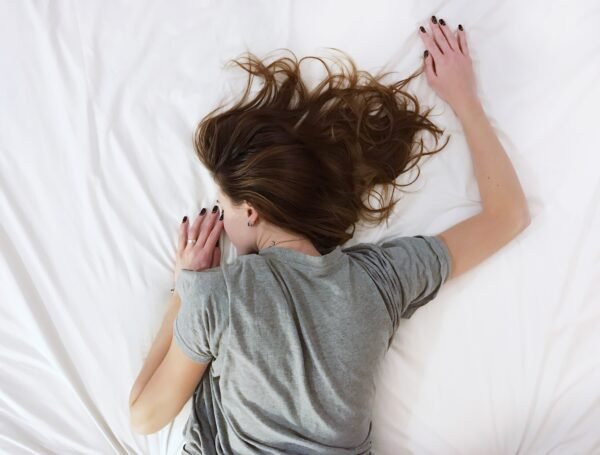
What Can You Expect Through Perimenopause and Post-Menopause Life?

A woman experiences so many changes as she matures, from going through puberty and starting her period, to getting pregnant and finally entering the pre-and post-menopause phase. The bathroom cupboard will have seen it all, from teen pads to organic tampons, maternity pads and more, women’s bodies evolve over time.
Starting the menopause might seem like a daunting prospect after having become accustomed to managing your menstrual flow each month, and many women might not know what to expect other than an end to this.
However, there’s a lot to be aware of and we’ve provided a useful guide on what to expect from the menopause as it begins.
What does Perimenopause involve?

By the time women reach around 45-55 years old, they’ll have had an average of 480 periods (less if they have had any pregnancies). During this time, a woman’s hormones will have been on a rollercoaster ride. Between these ages, for most women their oestrogen levels begin to drop as their hormones trigger one final transition to begin — the menopause.
Initially, a woman will be ‘premenopausal’, and her periods will continue with no obvious signs of the change other than hormone levels and these could easily go unnoticed. When this happens, she might still need to carry a trusty pack of towels or tampons as she’ll still be getting her monthly cycle. In time, this develops into perimenopause, where women will experience symptoms of the changes going on in their bodies.
Common signs of perimenopause include:
- Changes in your monthly cycle
- Heavier periods
- Altered sleeping pattern
- Mood swings
- Hot flushes
While oestrogen levels continue to drop, in the final stages of perimenopause it is still possible to get pregnant so it’s important to be aware of this. One of the biggest changes women notice to their cycle is that their monthly flow could become a lot heavier than usual, so it can be helpful to stock up on ultra tampons, helping to keep leaks at bay.
In terms of how long a woman will experience the perimenopause phase, it will vary depending upon a range of factors including genetics, lifestyle, stress and health, and there’s no set equation for determining how long it’ll last, or when it will begin. It may be useful to have a hospital bag checklist for all of the products you may need!
The average age for starting the menopause in the UK is 51, and a woman could begin to experience symptoms months or years before or after her final period, with some starting perimenopause 8-10 years before entering full menopause.
What does the menopause involve?

When a woman goes from perimenopausal to menopausal, her ovaries will have stopped releasing eggs and she will no longer get her monthly period. A menopausal woman will be producing a minimal amount of oestrogen, and if she has gone 12 months without a period then she has officially entered the menopause.
Some of the symptoms which can occur include:
- Low libido (sex drive)
- Memory or concentration issues
- Discomfort during sex
- Headaches
- Hot flushes
- Vaginal dryness
- Mood swings
- Recurrent urinary tract infections
- Joint stiffness/aches and pains
- Night sweats and sleep disturbances
Again, pinning down a set point for when a woman will begin experiencing these signs and enter the menopause stage isn’t possible, and the symptoms could begin months or years before the final menstrual cycle.
When it comes to managing the symptoms of the menopause, there are many medical and naturopathic remedies used but it’s likely to take some trial and error finding something that suits you. For women struggling to manage the effects of fluctuating hormone levels, hormone replacement therapy (HRT) may be offered in the form of gel, tablets or skin patches.
If a low mood or recurrent anxieties is the most troubling symptom, then cognitive behavioural therapy (CBT) might be recommended by a GP as a helpful method for voicing thoughts and feelings. It could also be beneficial to give light exercise a go — yoga and tai chi are both great options to consider. For alleviating vaginal dryness or itching, a vaginal oestrogen lubricant or moisturiser could provide some relief.
Managing post-menopause life and some helpful habits
The years following a woman’s last menstrual cycle are referred to as the postmenopausal stage, where irritating symptoms such as hot flushes could begin to lessen. As the body will no longer be producing oestrogen, women become higher risk for a range of health conditions such as heart disease and osteoporosis so it’s important for women to look after themselves and lead a healthy lifestyle.
A herbal medicine could be another route to consider and as a naturopathic remedy it can be tailored to suit the exact symptoms. Also, red clover, black cohosh, sarsaparilla and liquorice root are all associated with treating menopause related symptoms.
Taking a vitamin D supplement has also been found as an effective way to combat any lingering menopause symptoms as well as keeping any deficiencies at bay. Getting plenty of sleep each night and limiting alcohol intake can also prove beneficial, enabling the body to recover efficiently. Some natural oils are praised by menopausal women at every stage of the changes, and some popular options include clary sage oil, thyme oil and peppermint oil, celebrated for their ability to balance hormones naturally.
Women’s bodies are certainly equipped to take on a lot over the course of their lives, controlled by the all-important hormones which trigger each process to begin. Prepare for each stage of womanhood and find a solution that suits you!












































